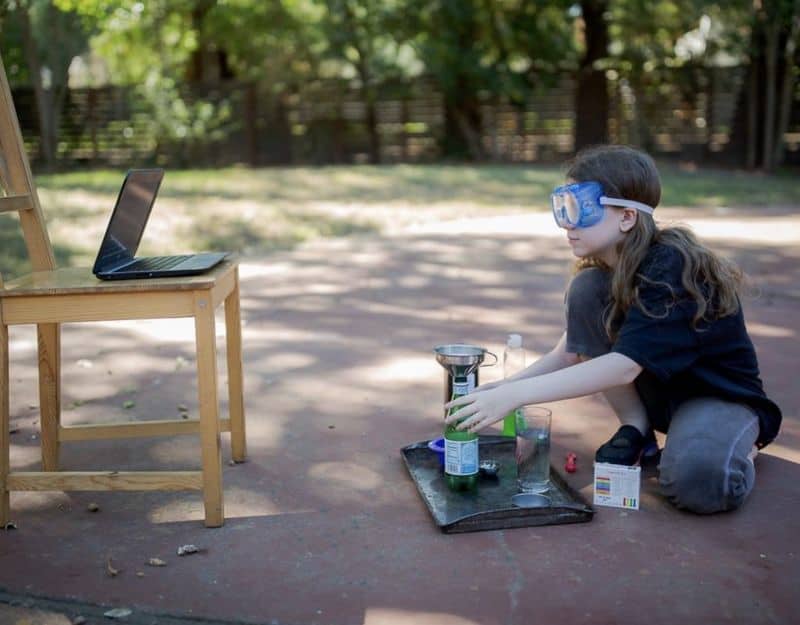Parenting is a journey filled with love, challenges, and learning experiences. As parents, we often strive to give our children the best of everything, from education to life skills. However, in the pursuit of excellence, it’s easy to fall into the trap of being overly critical or demanding. This can lead to unnecessary stress and hinder a child’s natural growth and happiness.
Recognizing the signs that you might be too hard on your child is essential for fostering a nurturing and supportive environment. In this blog post, we explore 13 telltale signs that indicate you may need to ease up and offer practical advice on how to strike a healthy balance. By understanding these indicators, you can ensure that your parenting approach promotes a harmonious and joyful upbringing for your child.
1. Constant Criticism

Constant criticism can undermine a child’s confidence. It’s important for parents to balance constructive feedback with encouragement. If you find yourself frequently pointing out your child’s mistakes, consider shifting your focus. Acknowledge their efforts and celebrate small successes. This approach helps reinforce positive behavior and aids in building self-esteem. Remember, children are still learning and growing. Allow them space to make mistakes and learn from them. Instead of criticizing, engage in conversations that guide them towards better choices. This nurturing approach fosters trust and open communication between you and your child.
2. Unrealistic Expectations

Setting high standards is good, but they shouldn’t be unrealistic. When we demand more than a child can handle, it leads to stress. Observe if your expectations match their abilities and interests. It’s crucial to encourage without overwhelming them. Children thrive when they feel supported rather than pressured. It’s important to celebrate progress rather than just results. Understand that each child is unique and develops at their own pace. Adjust your expectations to align with their individual capabilities, ensuring they feel valued and understood.
3. Lack of Playtime

Play is a vital part of childhood, offering both joy and learning. If you restrict playtime for more structured activities, consider its impact. Play enhances creativity and problem-solving skills. Balance is key; ensure your child has ample time for play alongside their responsibilities. Observe if their schedule seems overly packed with structured tasks. Allowing for unstructured playtime fosters independence and joy. Engaged play leads to a well-rounded development, helping children relax and recharge. Encourage activities that they enjoy and participate in them to strengthen your bond.
4. Comparing with Others

Comparing your child to others can diminish self-worth. Each child is unique, with their own strengths. Celebrate their individuality rather than measuring against peers. Notice if you often make comparisons, and try shifting your focus. Emphasize efforts and improvements instead of competition. Acknowledging achievements on their own terms boosts confidence and motivation. Understand that every child’s journey is different. Encourage them to set personal goals and support their growth. This approach nurtures a sense of self-respect and helps them appreciate their uniqueness.
5. Ignoring Emotional Needs

Children’s emotions are delicate and need attention. If you’re too focused on practical aspects, emotional needs may be overlooked. Spend quality time listening to their feelings. It’s essential to create a safe space for them to express themselves. Validate their emotions and offer comfort when needed. This connection strengthens your relationship and aids in emotional development. Recognizing and addressing emotional needs fosters resilience and trust. Make it a habit to check in on their emotional well-being regularly. This approach helps in raising emotionally intelligent and empathetic individuals.
6. Over-Scheduling Activities

Overloading schedules can lead to burnout. Ensure your child has time to relax and pursue interests. Assess whether they’re feeling stressed by their commitments. Encourage them to choose activities they genuinely enjoy and set realistic schedules. Balance is crucial; it allows for both personal interests and downtime. Create a routine that includes breaks and leisure. Being less rigid with schedules helps them explore creativity and develop independence. Allow them space to unwind and recharge, which is essential for overall well-being. This approach nurtures a healthy and balanced lifestyle.
7. Lack of Autonomy

Children need the freedom to make choices. If you’re overly controlling, they might feel restricted. Evaluate if you’re making decisions they should be involved in. Providing autonomy encourages responsibility and decision-making skills. Allow them to express opinions and contribute to choices affecting them. This practice builds confidence and independence. Guide them rather than dictate, supporting their growth. Balance is important; offer guidance without taking over. This approach fosters a sense of empowerment and prepares them for future challenges. Encourage self-reliance while being a supportive presence in their life.
8. Neglecting Positive Feedback

Praising achievements is crucial for motivation. If positive feedback is scarce, it can affect morale. Recognize and celebrate their victories, big or small. This reinforcement encourages persistence and boosts self-worth. Notice if you often focus on shortcomings instead of accomplishments. Shift to highlighting strengths and efforts. Positive reinforcement cultivates an optimistic mindset. Encourage them by acknowledging progress regularly. This practice not only builds confidence but also strengthens your relationship. Create a habit of expressing gratitude and admiration for their hard work and dedication.
9. Excessive Disciplining

Discipline is necessary, but excessive strictness can be counterproductive. Observe if rules are too rigid or if punishments are severe. Effective discipline involves understanding and patience. Balance rules with explanations and empathy. Ensure consequences are fair and related to actions. Engage in discussions about rules and expectations. This approach helps children understand boundaries and the reasons behind them. It promotes cooperation and mutual respect. Encourage dialogue and provide guidance instead of imposing harsh measures. This balanced approach fosters a positive environment and strengthens family bonds.
10. Focusing Solely on Academics

Academics are important, but not the only focus. If you prioritize grades over other interests, reconsider their impact. Holistic development includes arts, sports, and social skills. Encourage a balanced approach to learning. Recognize and nurture diverse talents and passions. This comprehensive perspective enriches growth and happiness. Observe if academic pressure is overshadowing other pursuits. Create an environment that values all-round development. Support their interests and hobbies alongside studies. This approach cultivates a well-rounded individual and enhances their overall well-being.
11. Ignoring Personal Interests

Personal interests are crucial for self-expression. If you’re dismissing them for more structured activities, reconsider. Support their passions and interests, even if they differ from your expectations. Encouragement helps them explore talents and develop confidence. Recognize their enthusiasm and provide resources to pursue interests. This nurturing approach boosts creativity and joy. Encourage self-discovery and personal growth. Balance structured activities with personal pursuits. Offering support in their endeavors enriches their happiness and builds a positive self-image. Engage in their interests to strengthen your bond and understanding.
12. Lack of Quality Family Time

Quality family time is essential for bonding. If gadgets distract during meals, it may hinder interaction. Create opportunities for meaningful conversations and shared experiences. Set aside time for family activities that everyone enjoys. This practice strengthens connections and teamwork. Prioritize being present and attentive in each other’s lives. Balance individual pursuits with collective experiences. Encourage storytelling, laughter, and shared interests. This nurturing environment fosters love and understanding. Regular family time enhances mutual respect and empathy, creating lasting memories and relationships.
13. Overemphasis on Perfection

The pursuit of perfection can lead to stress and anxiety. Encourage effort and improvement rather than flawlessness. Observe if you’re pushing for unattainable standards. Emphasize learning from mistakes and valuing progress. This mindset fosters resilience and self-compassion. Praise their dedication and perseverance. Understand that perfection is subjective and not always attainable. Celebrate achievements, regardless of scale. This approach nurtures a healthy attitude towards challenges. Support them unconditionally, helping them embrace imperfections. Encourage a growth mindset and cultivate an environment where learning is valued over perfection.

Well, hello there!
My name is Jennifer. Besides being an orthodontist, I am a mother to 3 playful boys. In this motherhood journey, I can say I will never know everything. That’s why I always strive to read a lot, and that’s why I started writing about all the smithereens I came across so that you can have everything in one place! Enjoy and stay positive; you’ve got this!

